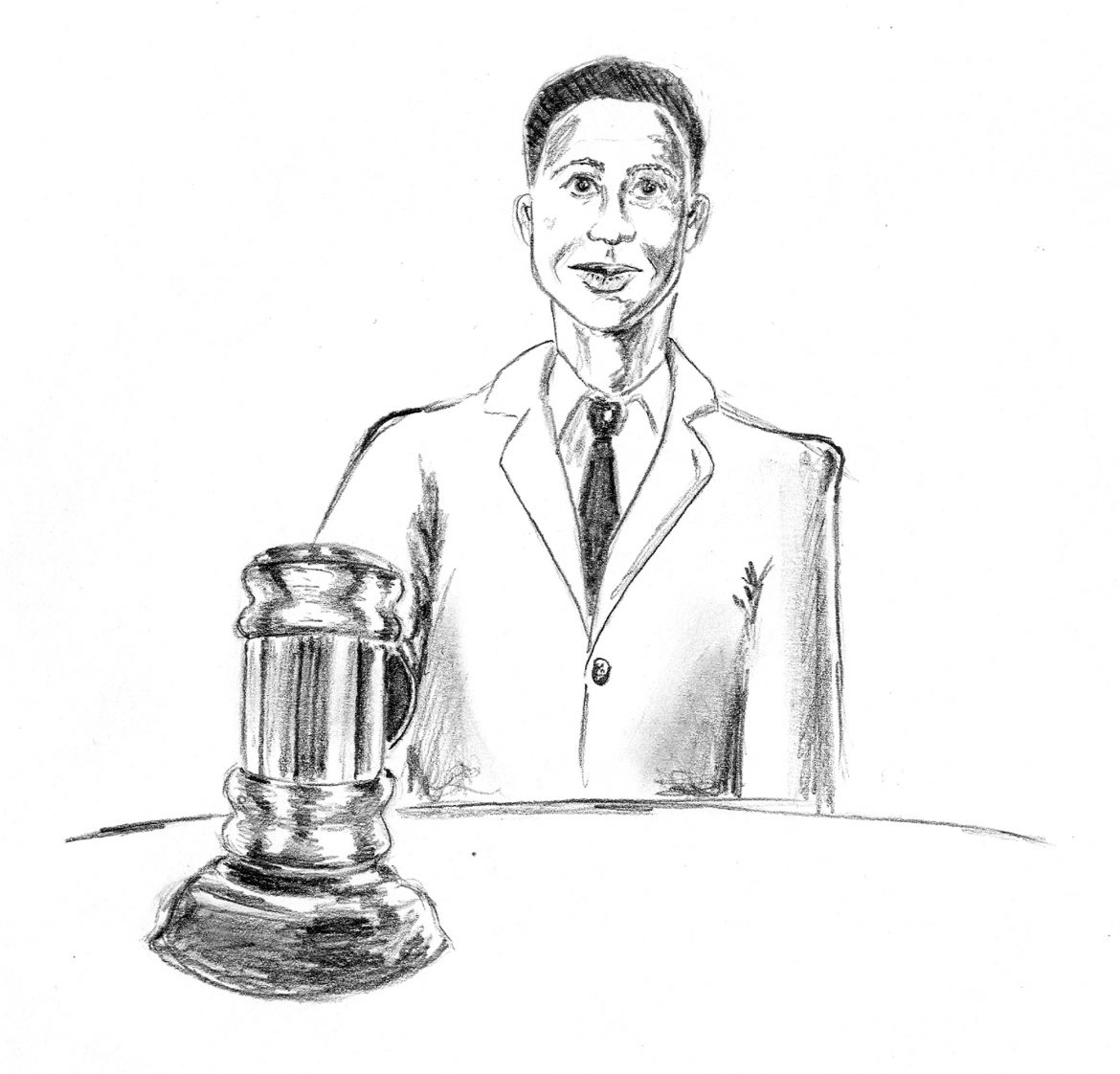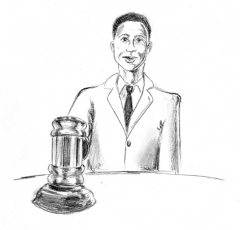By SUSANNA CONINE-NAKANO – Variety Writer
On Tuesday nights, students from Clarke Central High School and Cedar Shoals High School take their place in a courtroom. They begin to review the day’s juvenile court cases for Athens Peer Court.
Athens Peer Court, a program sponsored by the Athens-Clarke County Juvenile Court and the University of Georgia Fanning Institute, allows juveniles to redeem themselves after committing minor crimes. Cartoon by William Kissane.
A program sponsored by the Athens-Clarke County Juvenile Court and the University of Georgia Fanning Institute, APC is a part of UGA’s public outreach.
A juvenile charged with a crime is known as a respondent, which is a first-time offender charged with a minor misdemeanor, such as shoplifting, vandalism or minor possession of marijuana or assault.
The respondent has to plead guilty to the charge against them to be eligible for APC, and the sentence usually consists of community service, an essay or peer court jury duty.
APC is a valuable program, especially in regard to cases involving assault, When emotions overcome common sense a student can start a fight without thinking.
APC allows a second chance; it is way for the students to redeem themselves and learn necessary lessons. This allows the respondent to experience the consequences of their mistakes while not having a criminal record.
The most beneficial part of APC is that after completing their sentence, the offense is removed from the respondent’s record.
Although this opportunity can be favorable towards the respondents, an essay on its own as punishment is not the most effective way to teach these lessons. However, if a respondent does take the time to write and reflect, it could be valuable.
By completing community service hours, the respondent can see how their crimes affect the community. This eye-opening experience will cause respondents to think twice before engaging in criminal activity.
As jurors, former respondents will be empathetic and know how to most effectively sentence the current respondent.
However, to ensure the success of APC, program directors should offer a mentorship program. A former respondent could mentor a current respondent, helping them remain on the right side of the law.
APC is the most effective way to make juvenile offenders realize the seriousness and consequences of breaking the law. It will help them keep a clean slate for the their teenage years, in addition to their adult lives.
More from Susanna Conine-Nakano


